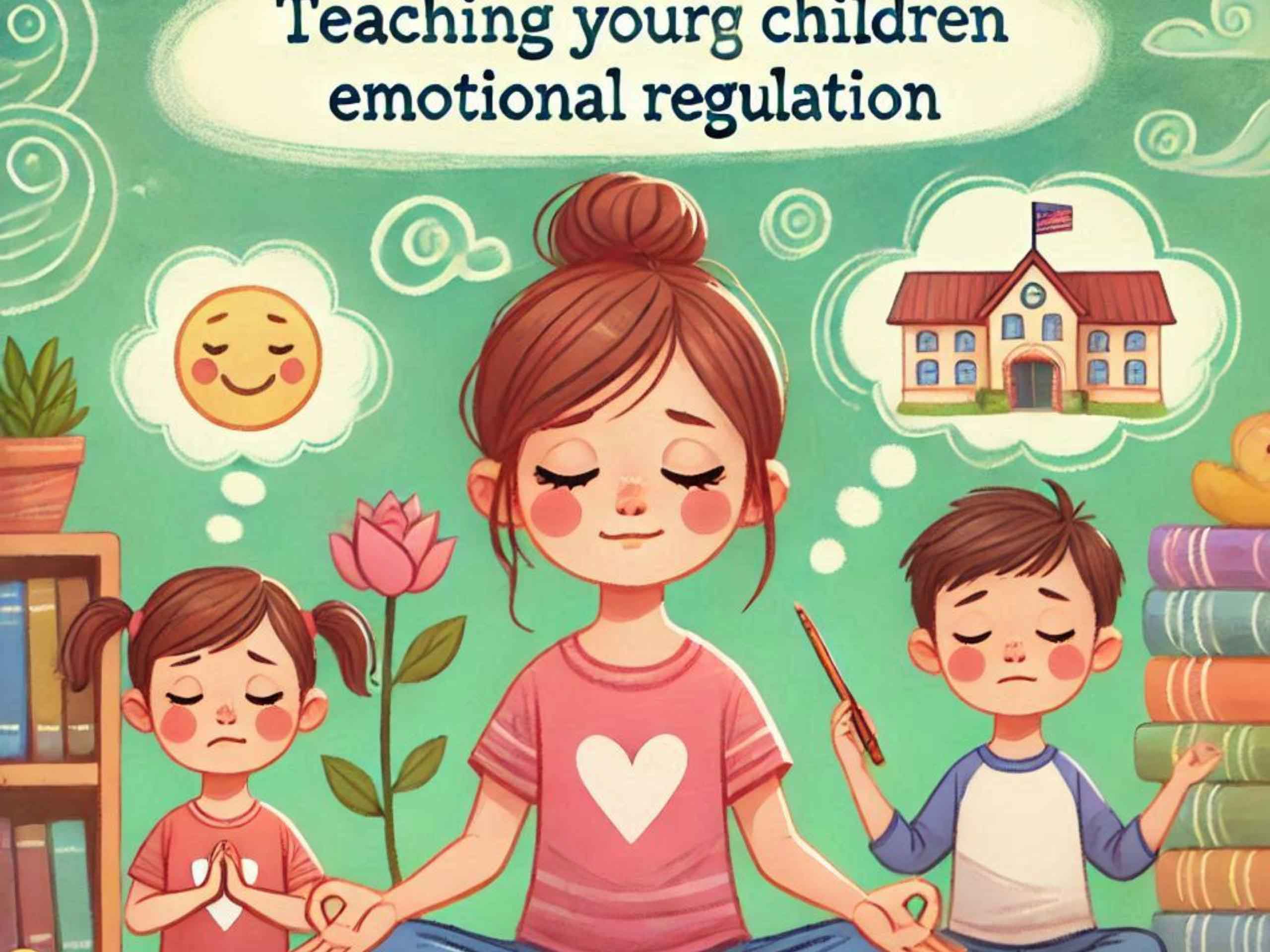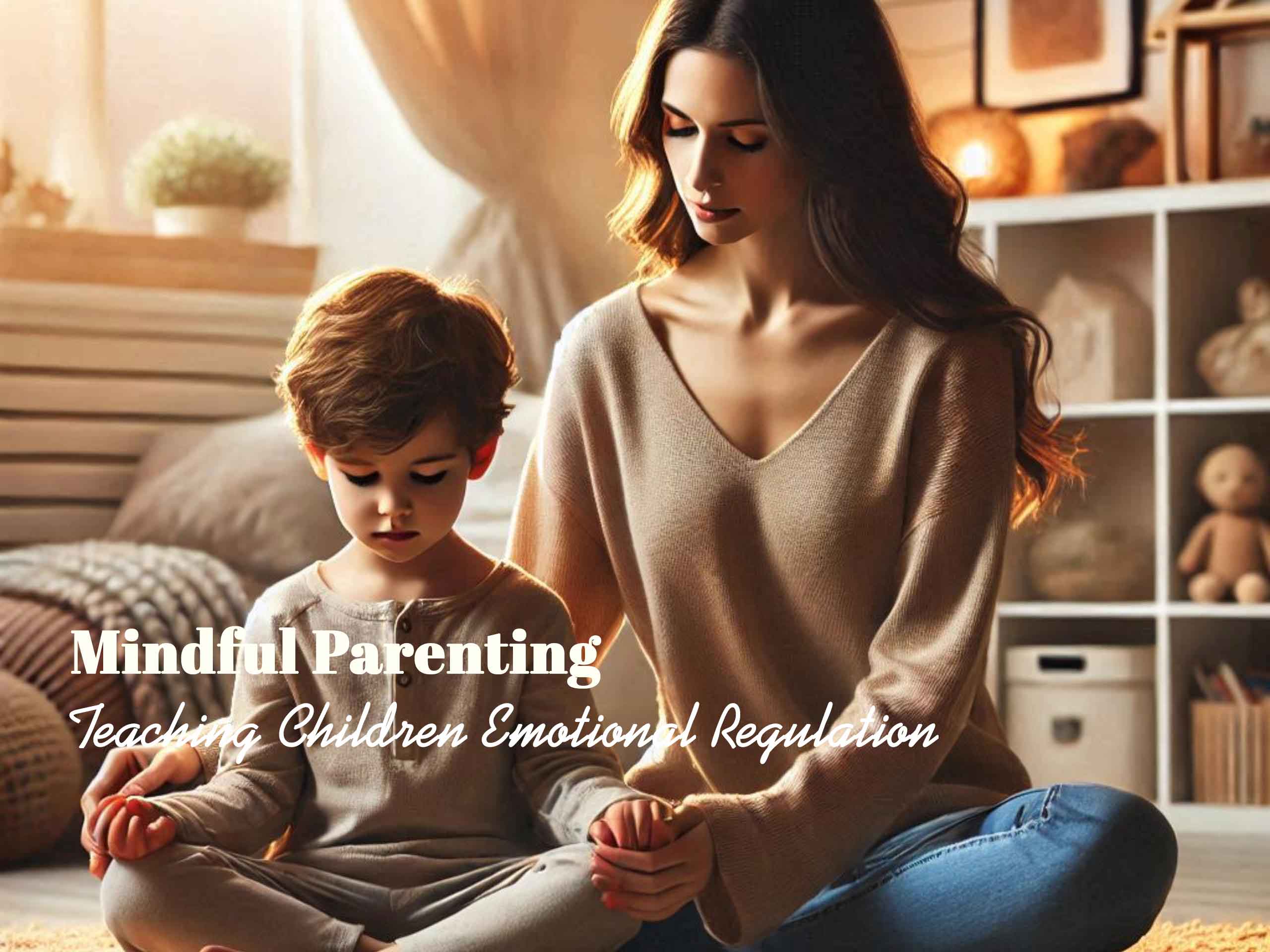Mindful Parenting: Teaching Children Emotional Regulation

In an age where information and stimuli bombard us from every direction, teaching children how to manage their emotions has never been more crucial. Mindful parenting, an approach that combines presence, empathy, and compassionate guidance, provides a nurturing environment where children can learn to regulate their emotions effectively. Here’s how you can incorporate mindful parenting to help your children thrive emotionally.
Understanding Emotional Regulation
Emotional regulation involves recognizing one's emotions, understanding the triggers, and managing responses appropriately. For children, this skill is not innate but learned through observation, guidance, and practice.

Why It Matters:
- Mental Health: Good emotional regulation can lead to better mental health outcomes, reducing the risk of anxiety, depression, and impulsive behavior.- Relationships: It fosters better interpersonal relationships by teaching children how to communicate their feelings constructively.
- Resilience: Kids learn to handle stress and bounce back from setbacks more effectively.
Principles of Mindful Parenting
- Be Present:
- Mindfulness starts with you. By being fully present in your interactions with your child, you model how to be in the moment, which is the first step in emotional awareness.
- Try activities like mindful breathing together, where you both focus on the act of breathing to calm down during emotional peaks.
- Validate Emotions:
- Acknowledge your child's feelings without judgment. Statements like, "I see you're really upset about this," validate their emotional experience and teach them that all emotions are okay to feel.
- Teach Emotional Literacy:
- Help your child identify and name their emotions. Use books, stories, or visual aids like emotion charts to discuss different feelings.
- Encourage them to express why they feel a certain way, enhancing their ability to understand emotional cues.
- Model Emotional Regulation:
- Children learn by example. Show them how you handle your emotions. Talk about your feelings openly, and demonstrate strategies like taking a break, deep breathing, or journaling.
- Cultivate Empathy:
- Engage in role-playing or discuss scenarios where your child can step into someone else’s shoes. This not only aids in emotional regulation but also in developing empathy.
- Practice Patience:
- Learning to regulate emotions takes time. Be patient with your child's progress and with your own reactions. Mindful parenting is about patience and understanding, not perfection.

Practical Techniques for Emotional Regulation
- Time-In vs. Time-Out: Instead of isolating your child with a time-out, use a 'time-in' where you sit together, discussing feelings and calming down together.
- Create a Calm-Down Corner: A special spot in your home with soothing items like books, soft toys, or coloring materials where children can retreat to manage their emotions.
- Emotional Check-Ins: Regularly check in with your child about their feelings, perhaps during family dinners or before bedtime, to normalize talking about emotions.
Challenges and Considerations
- Parental Stress: Your own emotional state can influence your parenting style. It's important to take care of your mental health so you can be more present and effective.
- Cultural Sensitivity: Understand that emotional expression varies across cultures. Tailor your approach while respecting cultural norms about emotion.
Conclusion
Mindful parenting isn't about changing who your child is but guiding them to understand and manage their emotional world. It's a journey of learning for both parent and child, fostering an environment where emotional regulation becomes a natural part of daily life. As they grow, these skills will empower them to navigate life's ups and downs with resilience and empathy, qualities that will serve them well in all aspects of life.
By integrating these principles into your parenting, you're not just teaching your child to manage emotions; you're giving them the tools to lead a balanced, fulfilling life.
Note: This is for informational purposes only and should not replace professional medical advice. Always consult a healthcare professional before starting any new treatment or session.
Join our community today and take the first step towards a healthier, more balanced you.
Photo: @Freepik, @unsplash, @Microsoft Designer

